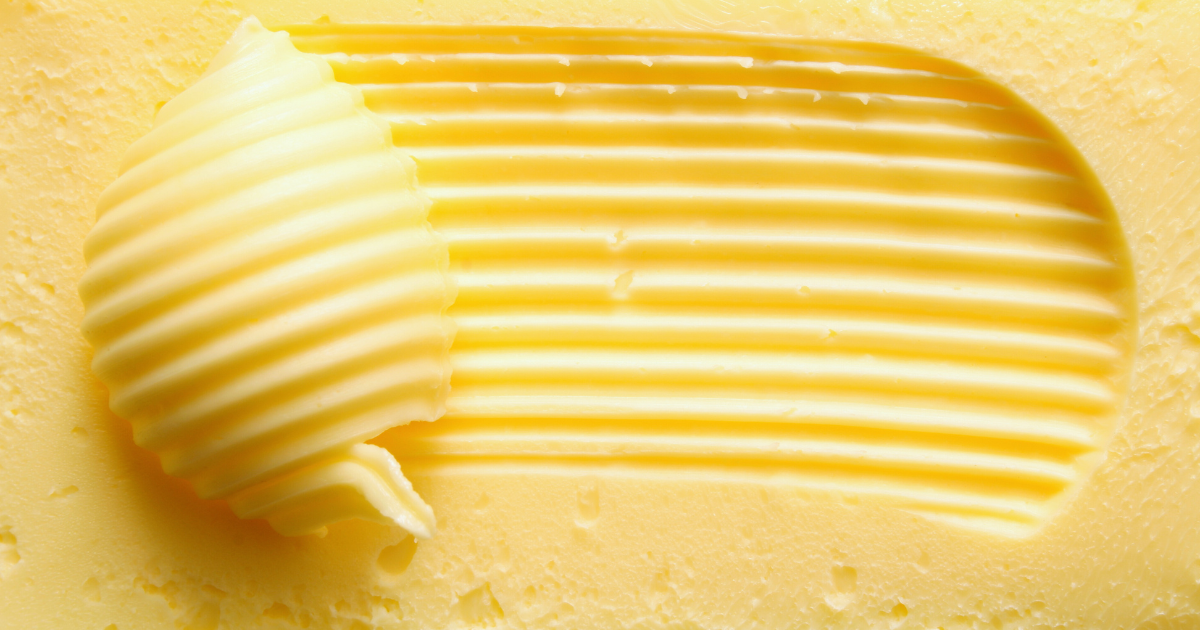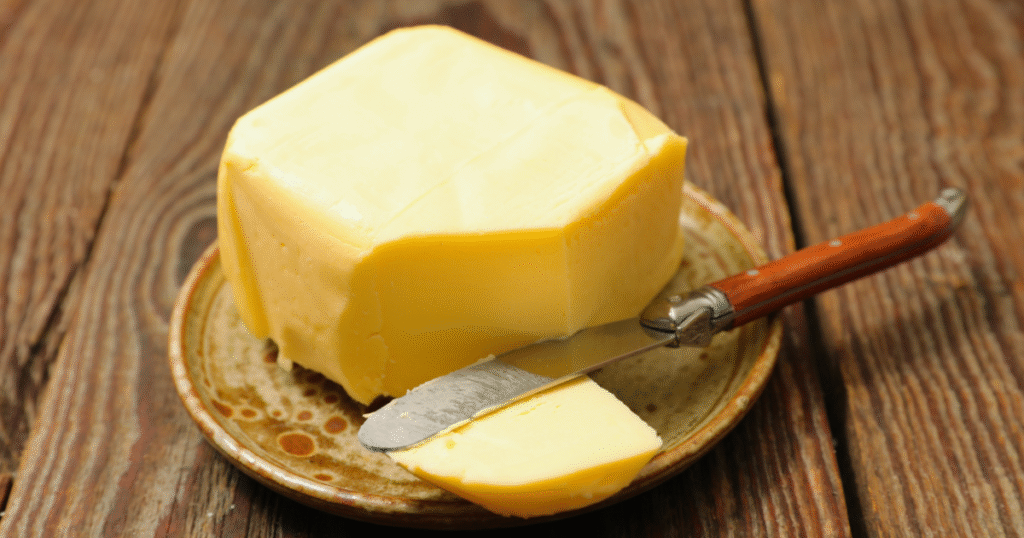
Butter isn’t just a beloved kitchen staple. In the carnivore diet, butter plays a unique role that goes far beyond simply adding flavor to a steak. As the foundation of a zero-carb, high-fat lifestyle, butter provides concentrated energy, essential nutrients, and a culinary richness that can make an all-meat way of eating more enjoyable and sustainable. Many people transitioning to the carnivore diet often wonder whether butter belongs on the plate. The answer is simple: butter doesn’t just belong in the carnivore diet, it thrives in it. In this article, we’ll explore why butter is more than a condiment, how it impacts health, and why it is often considered one of the perfect companions for those embracing the carnivore lifestyle.
Why Butter Works Perfectly with Carnivore
The carnivore diet is built around high-quality animal products. Since butter is derived directly from cream, it fits seamlessly into this lifestyle. Unlike plant-derived oils, butter represents a truly animal-based fat source that complements the philosophy behind carnivore eating. It provides an easy way to increase dietary fat intake, which is essential for energy when carbohydrates are nearly non-existent.
Butter also has specific advantages: it enhances satiety, reduces cravings, and provides a steady fuel source while remaining virtually carb-free. For those seeking to simplify their diet without sacrificing flavor or function, butter becomes one of the few additions that elevates the carnivore eating experience without breaking the rules.
The Nutritional Value of Butter
Butter may appear to be nothing more than fat, but a deeper look reveals a nutrient-dense food loaded with compounds that are beneficial in a carnivore framework. Among its powerful nutrients are:
- Vitamin A: Crucial for eye health, immune support, and hormone production
- Vitamin K2: Essential for bone and heart health, directing calcium into the right places
- Vitamin D: Works alongside K2 and calcium to support skeletal strength
- Butyrate (Butyric Acid): An anti-inflammatory short-chain fatty acid that supports gut health
- Conjugated Linoleic Acid (CLA): A fatty acid linked to fat metabolism and reduced inflammation
Additionally, butter made from grass-fed cows is higher in omega-3 fatty acids and contains more vitamins and antioxidants than conventional butter. This is why quality matters when selecting butter for a carnivore diet.
Butter as a Source of Energy
On the carnivore diet, carbohydrates are almost eliminated. This forces the body to burn fat as its main source of fuel. Butter is the purest form of usable dietary fat, providing energy that is both efficient and reliable. Due to its high saturated fat content, butter promotes ketone production, enabling the body to adapt to a fat-based metabolism.
The result for many adherents is sustained energy throughout the day, free from the crashes that typically come from relying on carbs. Adding butter to meals helps ensure that caloric intake is sufficient, especially for those who struggle to consume enough on meat alone.
How Butter Supports Digestion
A common misconception is that butter may be difficult to digest due to its high fat content. But in the carnivore diet, fat is not the enemy; it is a digestive aid. The fatty acids in butter actually encourage the production of bile, which supports the breakdown of other animal fats consumed in abundance.
Additionally, butyrate, one of the unique components of butter, has been shown to benefit the gut lining by reducing inflammation and supporting colon cells. For those transitioning from a carb-heavy standard diet to carnivore, butter can ease digestive adaptation and provide a smoother shift into fat-focused eating.
Butter Enhances Flavor and Satisfaction
One of the challenges of sticking to any diet is food monotony. While carnivore keeps eating simple, the lack of variety can sometimes make meals feel repetitive. Butter solves this problem by transforming a regular steak, eggs, or fish into a rich, flavorful dish.
Cooking with butter not only enhances taste but also improves mouthfeel by adding a creamy texture that balances leaner cuts of meat. This is particularly important for those choosing affordable options like chicken breast or ground turkey, which can otherwise feel too lean and dry. Adding butter ensures meals remain enjoyable day after day, which ultimately supports long-term adherence to the diet.
Butter and Weight Loss on Carnivore
Some worry that adding butter to the carnivore diet will slow fat loss because of its high calorie density. However, the truth is more nuanced. Fat from butter increases satiety, reducing the urge to overeat or snack. This naturally controls appetite and often leads to eating less overall.
The stable energy provided by butter minimizes cravings, especially during the early phases of carnivore. Because butter supports metabolism through nutrients like CLA and its effect on ketone production, it can actually enhance fat-burning efficiency for those in a caloric deficit. For many, butter aids in long-term weight management rather than hindering it.
Do You Need Butter in the Carnivore Diet
While butter is highly beneficial, it is not mandatory. Some strict carnivores adhere to an all-meat diet that excludes dairy entirely. Butter’s role depends on personal preference, individual tolerance to dairy, and specific health goals.
Those who are lactose intolerant often find that butter is still digestible since it contains only trace amounts of lactose and casein. Ghee, a clarified form of butter that removes nearly all dairy proteins, offers an alternative for individuals with higher sensitivity.
Ultimately, butter can be viewed as a supportive tool in the carnivore arsenal rather than an absolute requirement. It’s particularly helpful for those who need additional fat and flavor, but it is not compulsory for success.

Choosing the Right Type of Butter
Not all butter is created equal. For maximum benefits on the carnivore diet, quality matters. Here’s what to look for:
- Grass-fed butter – Higher levels of omega-3s, CLA, and vitamins compared to grain-fed varieties
- Unsalted butter – Offers more versatility in cooking and flavor control
- Ghee (clarified butter) – Ideal for those sensitive to milk proteins or looking for higher smoke points during cooking
Grass-fed butter brands are highly recommended as they align with the nutrient-dense, animal-based framework of the carnivore lifestyle. Investing in quality butter enhances both flavor and nutrition.
Butter in Cooking and Meal Preparation
Adding butter to your meal prep isn’t complicated. It can be used in several easy ways:
- Pan-searing steaks in butter for extra richness
- Adding pats of butter to ground beef or eggs for additional fat
- Melting butter over a roast before baking to keep it tender
- Mixing butter into seafood like shrimp or scallops for improved taste
- Preparing carnivore sauces by emulsifying butter with beef drippings
This versatility makes butter an indispensable carnivore cooking companion.
Butter’s Impact on Hormones
Healthy dietary fats are crucial for hormone production, particularly testosterone and estrogen. Since butter is rich in cholesterol and saturated fat, it supports hormone synthesis in ways that a low-fat diet cannot. Restricting fat too much is linked to poor hormone balance, fatigue, and reduced vitality.
By including butter, carnivore dieters ensure they’re fueling their bodies with the raw materials necessary for optimal hormone function. This contributes to better energy, improved recovery, and enhanced well-being, especially in men seeking strength and performance benefits from the carnivore approach.
Addressing Misconceptions About Butter
For decades, butter was demonized by mainstream nutrition advice, replaced by margarine and seed oils. However, modern research has shown that natural animal fats like butter are far healthier than processed alternatives. Studies indicate that saturated fat from animal sources is not inherently harmful and, in fact, may protect the body from inflammation and improve metabolic function.
Butter doesn’t clog arteries, nor is it responsible for heart disease when consumed within a nutrient-rich, whole-food diet. Instead, it is inflammatory processed oils high in omega-6 fatty acids that contribute to health problems. Butter, being natural and stable, is a safe and beneficial fat source in the carnivore lifestyle.
How Much Butter Should You Eat
There is no universal rule for butter intake on the carnivore diet. Some individuals thrive with high butter use, while others prefer to keep it minimal. The best approach is to let your goals and body dictate intake.
For those with higher energy demands, such as athletes or bodybuilders, butter can provide additional calories to support performance. For those focusing on weight loss, using butter strategically, such as with leaner meat cuts, can promote satiety without excess intake. The beauty of butter is its flexibility, allowing adaptation for different needs.
Butter is more than just a tasty addition to carnivore meals; it is a nutritional powerhouse that supports energy, digestion, hormone health, and long-term satisfaction. Its concentration of fat-soluble vitamins, ease of digestion, and ability to enhance flavor make it an essential companion for many carnivore dieters. While not mandatory, its inclusion offers profound advantages that contribute to the sustainability and enjoyment of the carnivore lifestyle.
For anyone considering or already living the carnivore lifestyle, butter is well worth embracing. Whether seared onto a ribeye, melted over eggs, or used to elevate a roast, butter demonstrates why animal-based eating isn’t just about survival, it’s about thriving.
READ MORE
- Each set includes 50 engraved natural river stones. Small enough to put in your Purse or Pocket. Selling item in party s…
- Stone size is Approx 2”- 3”, weighing about 2 ounces. Fit in pocket called pocket stones and also sizing to hold in hand…
- Polished stunning pebble stone, with positive words hand engraving, not imprinting or etching. For many different occasi…



